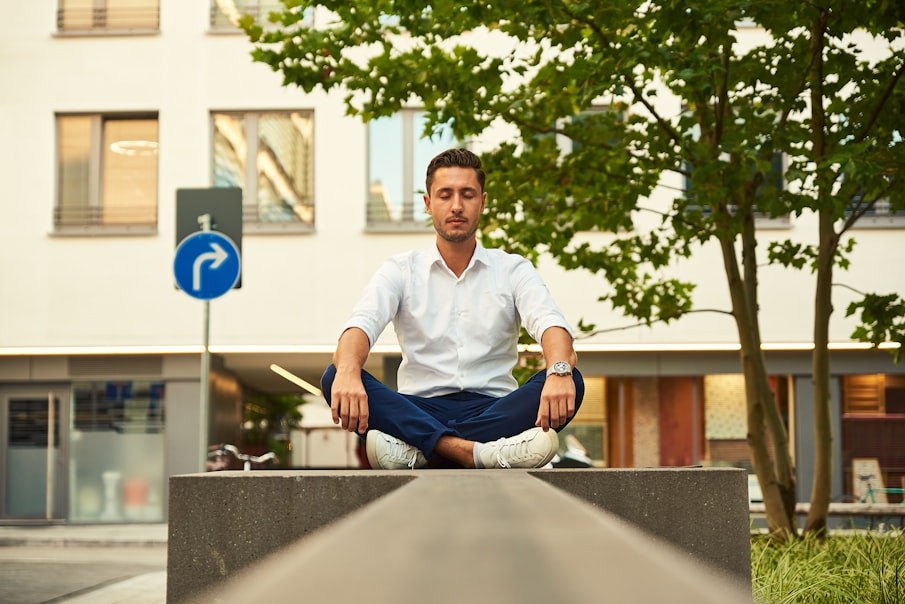We share 10 of the UK’s most searched for wellbeing activities and terms, and explain more about how you can incorporate them into your day to day life
Health and wellbeing have, in many respects, taken centre stage over recent years. We are becoming aware of the importance of looking after our health as a whole: mentally and physically. According to Bupa’s 2022 health trends report, more and more of us are starting to search for ways we can improve our wellbeing through more mindful exercise and mindful drinking, as well as tracking our stress levels and moods.
New research commissioned by The Knowledge Academy highlights the most commonly searched for wellbeing skills that we Brits want to learn. Developing wellbeing skills can help us to better understand and support our overall mental and physical health. Many of the techniques we learn can help to reduce stress, promote relaxation and reflection, and can even help us to better understand how we are feeling, recognise challenges and discover new ways to cope with or overcome them.
Virtually every aspect of our lives is affected by our mental health. By using wellbeing to promote and look after our mental health, we can improve countless areas of our lives, from increasing productivity to enhancing our self-image, to even improving our relationships. Who wouldn’t want to do that?
10 wellbeing activities and techniques to create a sustainable self-care routine
10. My morning routine
Known for our dreary weather and overcast skies, it’s no wonder so many of us want to get our days off to a better start with a better morning routine. If you find yourself struggling to get out of bed in the morning, there are many different ways you can tweak your routine to help you become a morning person.
From supercharging your breakfast to have a more nutritious start to the day, to implementing the five-second rule, ask yourself: what do I most want to get out of my morning routine? Are you hoping to be more productive, feel more rested, or even start the day with a sense of peace and relaxation? Knowing what you want from your mornings can help you create the best routine to fit your needs.
Discover how to supercharge your breakfast with 10 simple tips from nutritional therapist Jenna Farmer. Too busy to make time for breakfast? Nutritionist Resource shares batch bake breakfast recipes that can save you time whilst providing nourishment and comfort.
9. Restorative yoga
A unique style of yoga, restorative yoga is a restful practice, focused on slowing down and opening up your body through passive stretching. It encourages physical, mental, and emotional relaxation at a slow pace, while you hold a pose for five minutes (or more) and practice deep breathing. At its core, it promotes passive healing to help soothe your nervous system, reduce chronic pain, improve sleep, and enhance your mood.

8. Quitting smoking
Around 6.9 million people in the UK are still smokers. We all know the health risks of smoking, but that doesn’t make quitting any easier. Giving up smoking has been shown to have a huge range of benefits, including improved energy and immune system, increased life expectancy, decreased stress, and younger-looking skin.
Quitting smoking is a huge challenge that can take more than just willpower alone to break the habit for good. If you have struggled to quit in the past, hypnotherapy may be the answer. Helping break negative behaviours and thinking patterns associated with smoking, a qualified, experienced hypnotherapist can guide you, as well as help teach you self-hypnosis techniques you can use to reinforce suggestions and improved behaviours long after your sessions are complete.
Considering quitting, but unsure if hypnotherapy is for you? Hypnotherapist Juliet Hollingsworth explains everything you need to know about hypnosis to quit smoking.
7. Random acts of kindness
Showing kindness isn’t just good for others - it’s good for us, too. As Happiful’s own Kat explains, we’re wired for kindness. Practising kindness not only helps others feel loved and supported, but it helps us feel better, too. Try these simple ways to show kindness at work, in public, and with yourself, or take things online with these five acts of digital kindness.
6. Pomodoro technique
The Pomodoro technique works with the idea that it’s better to set aside a specific time to concentrate on a specific task and then build in a break, rather than trying to multi-task and do several things at once. Wellbeing facilitator coach Elaine Hilides explains more:
“Pomodoro is a time management method that is used around the world. The idea is that you decide on a task to do and then set the timer. You work on the task until the timer rings, and then you mark the time you spent on a piece of paper. You then take a short three to five-minute break and then set the timer and start again. When you have completed four rounds of this, you take a longer 15 to 30-minute break.
“Giving yourself ‘permission’ to take short breaks helps to activate the reward system in our brain. Taking a longer break at the end of an hour or so helps you get through your work and to enjoy a few more ‘fun’ things in your day.”
5. Positive affirmations
Affirmations may have more power than you might think. Helping us to gain confidence, find self-acceptance and practice self-love, positive affirmations can even help us to conquer anxiety.
Many of us practice negative affirmations without even realising it. By telling ourselves ‘I can’t do it’ or ‘I’m going to fail’, we are essentially telling ourselves that this is important information. As NLP practitioner Nicola Rae-Wickham explains, this can have a significant impact. “Language is one of the ways in which our mind is influenced and we can use it to help us get the results we want. It is this information that impacts our behaviour.”
Looking to build affirmations into your self-care routine? Try these eight affirmations for everyday life or, to find out more about how affirmations can help with your journey towards personal development, learn more about the power of affirmations with Life Coach Directory.

4. Relaxation techniques
There are many different relaxation techniques you can use in your everyday life. Breathing techniques can not only be used to help you feel more grounded and present in the moment but can also be done anytime, anywhere. Aromatherapy for relaxation is another popular technique that can be incorporated with other wellbeing activities such as massage, meditation, or even while taking a mindful bath.
If you find yourself struggling to relax, try Hypnotherapy Directory’s guide on how to practice self-hypnosis for relaxation.
3. Yoga for beginners
Yoga isn’t just about complex moves reserved for the super flexible - it’s a mindful practice that brings together movement and breath to promote physical and mental wellbeing, and it’s for everyone. Helping to improve strength whilst reducing stress levels, there are many different yoga styles to suit every need. For those looking for yoga to help with a specific issue (such as physical pain, stress, headaches, or even depression) yoga therapy may be for you.
Not sure where to start? Try yoga basics to learn more about the best ways for beginners to try yoga.
2. Bullet journaling
Research has shown that journaling can help us to manage anxiety, reduce stress, and cope with depression. By just writing down how we are thinking and feeling, we can begin to prioritise our problems, set them aside during the day, and even monitor how our mood and mental health change over time.
Bullet journaling has become a popular method to track everything in one place. It’s essentially a to-do list, planner, and diary all in one. You can use it to track just about everything, from tasks you want to turn into daily habits, to finding little ways to boost your motivation each day.
1. Guided meditation
The most popular wellbeing skill people want to learn, guided meditation is a form of meditation led by someone such as a wellbeing practitioner in person, on video, through audio recording or even using an app. This way, you are guided by an expert through the basic steps of meditation, to help you get into the right mindset.
If you’re looking for an easy way to get started with meditation, try these simple tips on how to make meditation easy, or for absolute beginners, learn more about meditation, where to start, and how you can prepare to ensure you get the most out of your meditative moments.


Comments